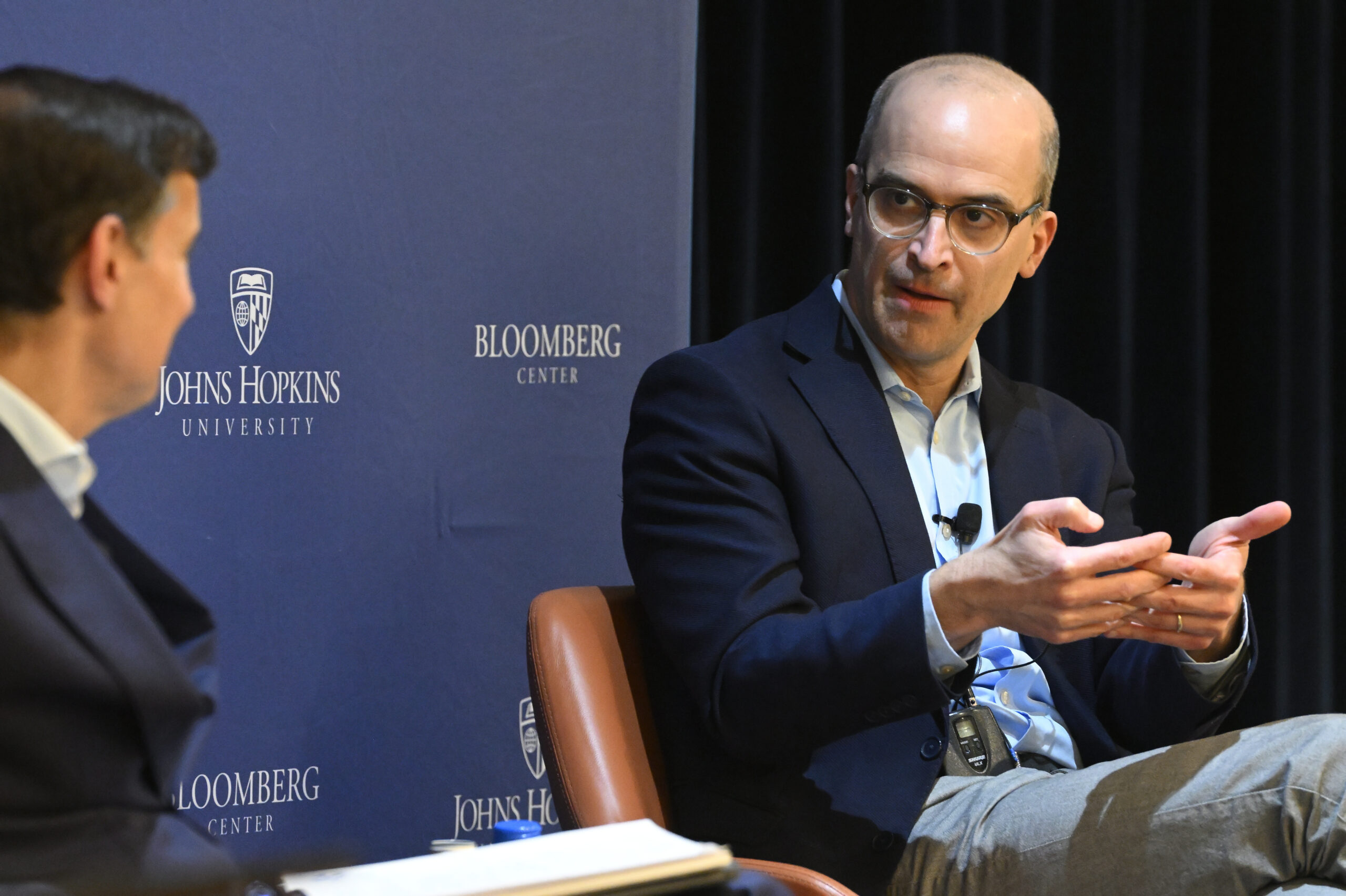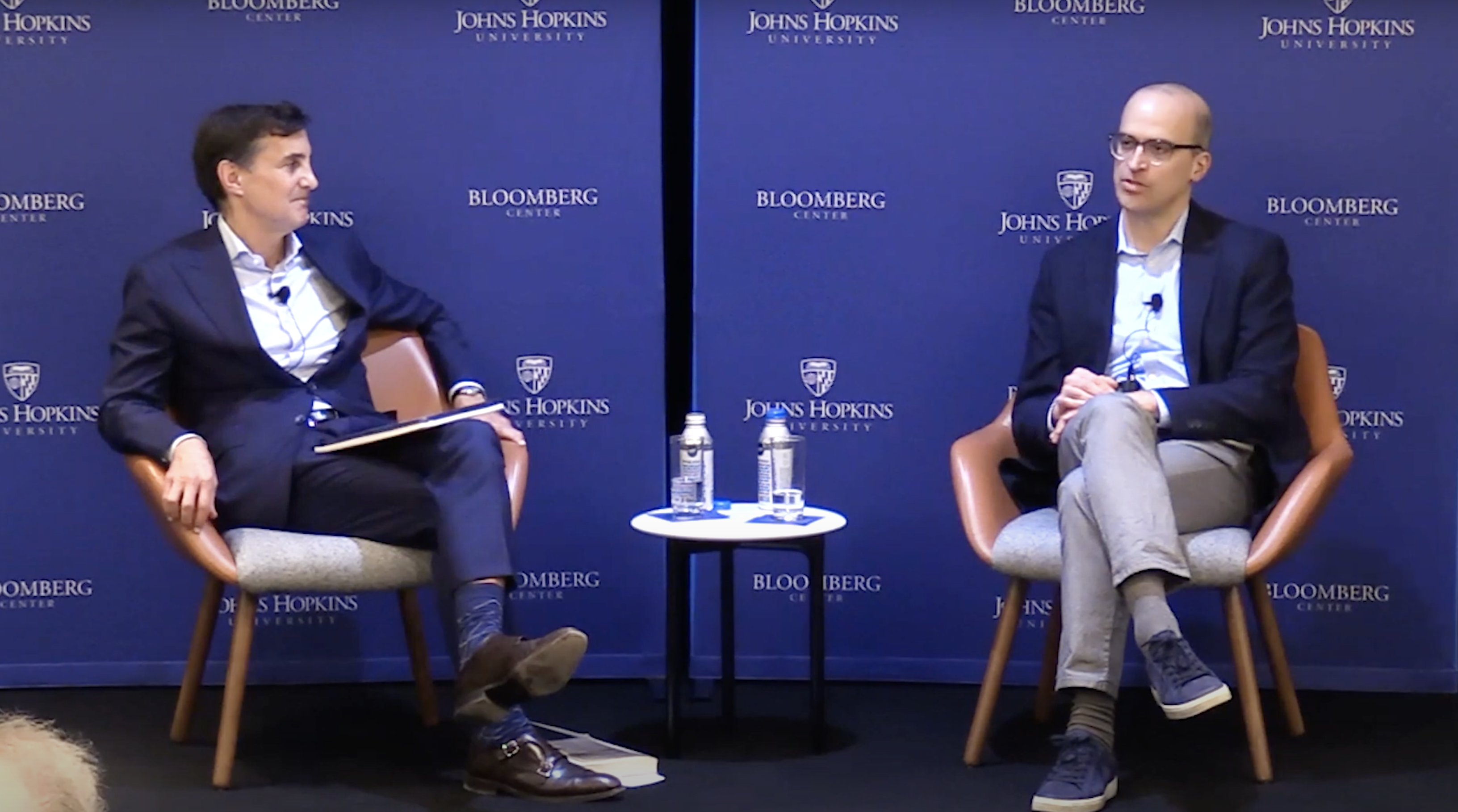NYT’s David Leonhardt on the American Dream
Increasingly the promise and prosperity of a better future seem out of reach for the majority of Americans, particularly those without a college degree, journalist and author says in conversation about his new book

For David Leonhardt, the Pulitzer Prize-winning New York Times columnist, one of the most significant divides in America is between those with a four-year degree and those with only a high school degree.
“There’s a meaningful divide … in life expectancy for people who do not have a four-year college degree and people who have a degree, like me,” he said. Roughly 60% of Americans ended their education after high school, and the divide affects not just life expectancy, but health and income, Leonhardt said.

Authors & Insights: Journalist David Leonhardt
That divide is a key topic of Leonhardt’s new book, Ours Was the Shining Future: The Story of the American Dream. He spoke with Johns Hopkins University President Ron Daniels about his writing and the state of the country at the Hopkins Bloomberg Center on Nov. 8.
Here are three takeaways from Leonhardt’s remarks:
1. Increasing economic mobility requires growing the pie—and dividing it more evenly.
Leonhardt endorsed policies that “are investments in the future,” pointing to the 1950s interstate highway project as an example.
“Whether it’s investments like that, whether it’s the share of our GDP that goes to R&D research, whether it’s education … all of those things can expand the pie,” he said.
2. The trade policies of the ‘90s didn’t pay off for Americans.
The 1990s were marked by new trade agreements with countries around the world. Those changes may have led to cheaper goods and helped lift millions of people in Asia and Africa out of poverty, but they left many Americans behind.
“I find it really hard to think about the communities that are dominated by Americans who don’t have a four-year college degree, and think about tangible benefits that these policies have delivered to those communities,” Leonhardt said.
He added that while leaders argued the reforms would lead to a more free world, we’re yet to see that goal come to fruition.
“Bill Clinton said about China and restricting the internet, ‘Good luck with that. It’s like stapling Jello to a wall,’” Leonhardt said. “I think the Chinese government has found a stapler that manages to keep Jello on the wall.”
3. There’s reason for optimism.
With Congress at a standstill, it may sound counterintuitive, but Leonhardt is optimistic about the future because of “how well our political system has worked to change our society in recent years.”
He pointed to the gay rights movement as an example.
“How many of us would have predicted we would have marriage equality in this country, as rapidly as we had, that was a grassroots political movement that developed the goal and moved public opinion and elected friendly politicians and changed the law?” he asked.
On the state level, there’s been successful efforts to legalize marijuana, raise the minimum wage, and expand Medicaid.
“Grassroots political movements in this country really can work,” he said. “They often take decades to work, but they can change our society in profound ways.”